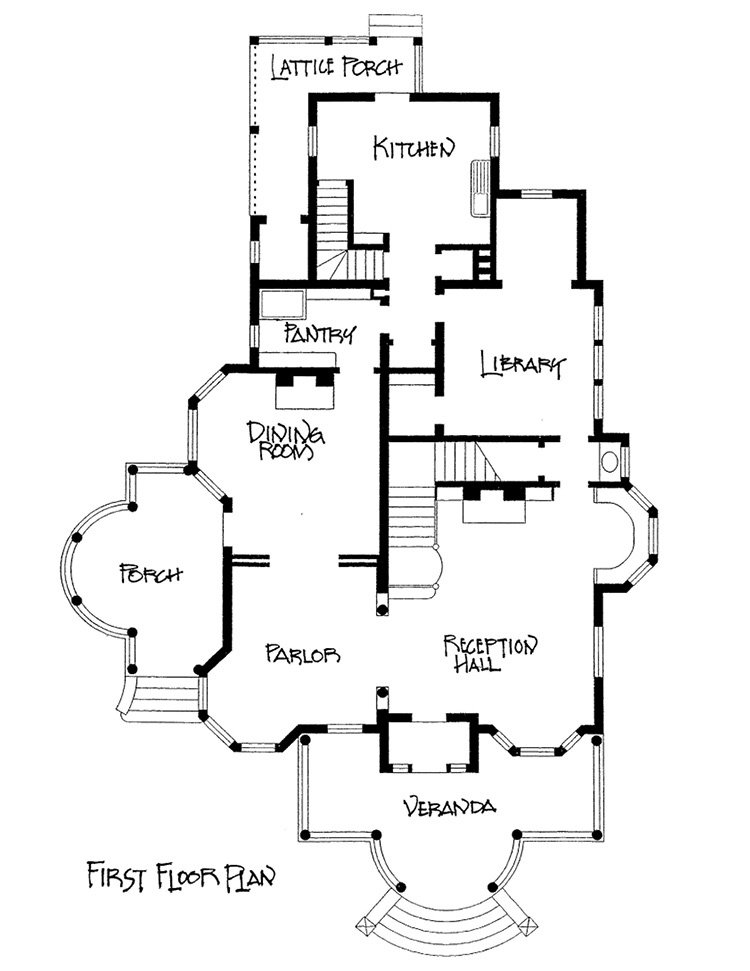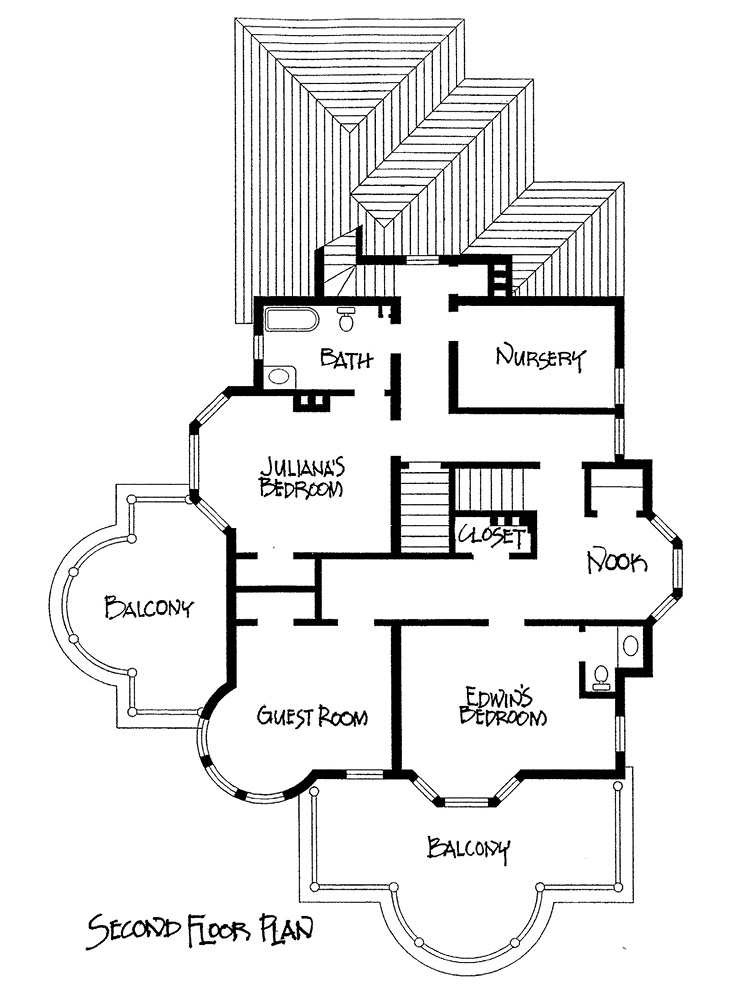The House on Seventh Street
Read The House on Seventh Street Online
Authors: Karen Vorbeck Williams


Karen Vorbeck Williams
“Nancy, every place you go, it seems as if mysteries just pile up one after another.”
âCarolyn Keene,
The Message in the Hollow Oak
“The life of the dead is placed in the memory of the living.”
âMarcus Tullius Cicero

Booktrope Editions
Seattle WA 2015
Copyright 2015 Karen Vorbeck Williams

This work is licensed under a Creative Commons Attribution-Noncommercial-No Derivative Works 3.0 Unported License.
Attribution
â You must attribute the work in the manner specified by the author or licensor (but not in any way that suggests that they endorse you or your use of the work).
Noncommercial
â You may not use this work for commercial purposes.
No Derivative Works
â You may not alter, transform, or build upon this work.
Inquiries about additional permissions should be directed to:
[email protected]
Cover Design by Rhianna Davies
This is a work of fiction. Names, characters, places, brands, media, and incidents are either the product of the author's imagination or are used fictitiously. Any resemblance to similarly named places or to persons living or deceased is unintentional.
Print ISBN 978-1-5137-0210-0
EPUB ISBN 978-1-5137-0252-0
Library of Congress Control Number: 2015911450
For Bette, my mother
A huge debt of gratitude goes to Marcia Ford. Writing a book is a solitary task until the manuscript is ready for an editor. You hope your editor will care about your work as much as you do. Marcia did, and for that alone, I can't thank her enough. To editor Angie Kiesling, thank you for your good-natured mad dash to the deadline for the BEA. Lee Rudolph, I truly appreciate that you mounted a white horse and came to my rescue. During the long life a book has on the road to publication, editor Laurel Busch appeared as a gift. I am grateful to her and my Booktrope team. Thanks also to my agent, Carolyn Jenks, who is brilliant and tends to lead with her heart. I happen to be lucky enough to have two highly talented family members who have also contributed to the success of this book. David Ragsdale and Meredith Rubin, you are and always have been the lights in my life and a real help to me. Architect Bruce Landenberger kindly agreed to draw the floorplans for the house. Thanks, Bruce. The Nancy Drew mysteries I enjoyed as a kid inspired this book. Carolyn Keeneâwith all “her” many facesânot my schoolteachers, taught me that reading could be fun.


October 1998
NEVER IN
THE HISTORY
of the old house on Seventh Street had anyone locked the kitchen door. A locked front door was caution enough in Grand Junction. One October morning, Henry Grumman opened the door, stepped out into the sunshine, and shuffled toward the â86 Cadillac in the driveway. It was Sunday, time for his weekly drive.
He opened the car door and settled in the driver's seat, then backed down the drive away from the old house where he was born. Heading south, he drove through a neighborhood that had not changed in fifty years. For Henry Grumman, sights in town had never lost their appeal. He welcomed the old streets leading to old parks, public buildings, stores, and his favorite, the railroad station with its fine brick depot built when he was a boy. Of the people he had known over his lifetime, most were now dead or had moved away. In Henry's memory, they still lived in the houses and worked at the stores. These days he was just a little forgetful, just a little more comfortable in the past than the present.
This Sunday he wanted to visit Unaweep Canyon and drove south out of town into the desert. Whitewater and the mouth of the canyon were only fifteen miles away. He remembered the stories his father had told about the early days, when there was nothing here but desertâjust brown tracks through the dry white lakebeds. Back then, timbers were left alongside the way for stranded travelers to lay over a flooded wash or a sink of mud. Folks depended upon that and the blanket and water they carried in the trunk. If there was trouble, a car might have to wait for hours before another car came along. There was no need for that now. He felt pride in the progress made, grateful for the ease with which he now traveled.
Henry turned right at State Road 141 and soon entered the canyon. He slowed and rolled down his windows. How fresh and green the air smelled! He looked up at red canyon walls to his right and across the divide to the other side, the colors muted and misty through highflying dust in the air.
Over the years, he had come to Unaweep Canyon with his first wife, Nora. She had loved the canyon. Nora was an artist, the mother of his daughters, a beautiful woman he had married in 1937. They had twenty-three years together before her fatal heart attack. She always brought a lunch and a sketchpad along. He brought his camera and they would stay all day walking trails or just sitting and taking in the view, hardly talking. He had kept all her paintings and drawings and still thought about her every day.
Alongside State Road 141, the colors of fall had come on. Shrub oak and skunk brush glowed red, tall grasses flamed gold against low spreads of straw colored cheat grass, weathered sagebrush stood gray and dusty green. In spring, the canyon floor held green meadows and patches of wild blue lupine. In time for Henry's visit, the aspen and cottonwood trees had turned yellow below the dark shaded cliffsâand above everything a piercing blue sky. He came here because he felt like he was part of the cliffs and distant viewsâlike the way he felt he was part of the town. He was more at home here than he had ever been in the rooms on Seventh Street, and not since his wife, Nora, had he felt part of another human being.
Once, Nora had told him what the Indian word “unaweep” meant. He tried to remember.
Though he had wanted sons, Nora had two daughters. He had not known how to be a father to them. He would have known with sons. He would have taught them the business, taken them fishing, and to ball gamesâmaybe even played catch in the driveway. His daughters were both very pretty girls. He was glad of that, but he hadn't known how to talk with them, or what went on in their heads. He didn't know what to teach themâexcept for correcting their childish English and making them put their napkins in their laps. Later he taught them how to waltz and foxtrot.
Looking back on the past to his failures made him uncomfortable, but sometimes those things rudely pushed into his mind and before he knew it, he would linger there for a time. Henry knew he had not been much of a father to those girls. He regretted that.
He turned left on a dirt road heading toward cliffs formed of granite and large Dakota sandstone blocks. The road would take him up to the overlookâthe place he liked to sit and watch the clouds roll in. From that spot, he could see illimitable space stretching west to Utah and onward.
The old Cadillac bumped along the dusty road following the curves of the foothills and the crevices in the canyon walls. From a distance, the cliffs appeared as a solid face, but up close there were openings, gorges carved through the ages by streams and wind. The road took him there.
Canyon with two mouths, he remembered. That's what “unaweep” means.
The road narrowed, becoming steeper and more twisted as he pushed his old car over imbedded stones and deep ruts. She groaned and whined, her wheels spun in loose gravel, and he gave her more gas. He had sat in the driver's seat since he was twelve. Henry knew how to maneuver a car over rutted roads. The car responded to him. Master of this day's adventure, Henry rolled up his window to keep out the dust and the road wound higher, above a deep ravine.
Henry was beginning to think he had taken the wrong road. He did not remember driving so long on such a rough road to his favorite overlook. He could see a dry creek bed far below and the road was so bumpy that he wanted to turn around and go back. This was not the road he knew.
Henry pushed the car on, looking for a place wide enough to turn around, but if anything, the road narrowed. Pushing on, he felt the undercarriage hit hard against a stone in the road. He bounced in his seat, his head almost hitting the ceiling. Still no turnaround. He gave it the gas and felt something rip from below. The car gasped and came to a stop. Smoke came from under the hood and soon flames.
Henry quickly opened the door and looked straight down at a deep ravine. There was no place to put his feet on solid ground. Something was on fire. He could smell it. Struggling to breathe, his heart pounding, he scrambled over to the passenger door. Fire licked up the hood. Flames darted toward the windshield.
Henry tumbled out to the road. The intense heat forced him to his knees. Aware that he had better get as far away from the car as he could, he grabbed onto a sapling growing between the rocks above his head and struggled to his feet.
No longer fast on his feet, Henry felt his heart beat, his lungs clamp down as he tried to run up the road. Fighting for each breath, his legs like water, he hoped he would not fall. The very moment that hope came to mind, he felt his right ankle twist and he stumbled. His hands reached out to break his fall. His wrists crumbled from the weight of his body and he fell on his face, crushing his glasses.
Raw fear propelled him to his knees. He pulled up and looked back over his shoulder. The whole car was in flames. Henry tried to stand, but his ankle would not hold him. He crawled until his knees were bloody and he could no longer feel the heat of the fire. He turned for a look in time to see and hear the explosion.
As if he had come to the end of a long race, Henry pulled himself up on a flat rock at the edge of the ravine. Still struggling to catch his breath, he looked toward what was left of the burning car. Sparks flew and bits of flaming debris floated down to the parched streambed.
He looked out over the canyon to the distant cliffs and off to the west, to the endless mesas and mountain rises, and a sky of drifting clouds. Henry knew he could not walk out of there. There was little chance that he would be found. This was the place where he would die.
He thought of his daughters, remembering that he had left them a fortune. They would want for nothing.
Henry looked out over the view he loved so well knowing that tonight he would see the sun set and fall away, leaving him alone in the dark.